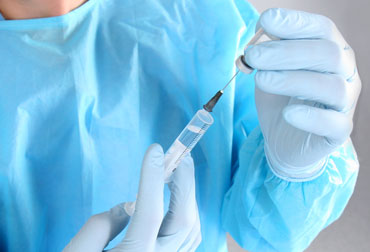Home and Other Visits
Regular patients of our practice are able to obtain visits in their home, residential aged care facility, residential care facility or hospital, both within and outside normal opening hours where such visits are deemed safe and reasonable.
We ensure that our patients can receive home and other visits, both during and outside normal opening hours. It has a written policy describing the circumstances in which home visits could take place. When you are scheduling a home visit, you can count on the same professionalism and dedication as during a usual visit to Family Doctor.
It is a regular part of our clinic’s work to provide home and other visits to patients within and outside normal hours as we care about all our patients equally. Moreover, home visits have been common practice since 1999. As a part of our supportive care, all outer visits include only basic care and medical procedures required by the current treatment program (besides ones that cannot be performed on-site).
Family doctor is always ready to take care about you and your family members, wherever you are. Feel free to contact our nurses and managers to find out more about home visits.

Patient Confidentiality
Confidentiality is one of the core duties of medical practice. It requires health care providers to keep a patient’s personal health information private unless consent to release the information is provided by the patient. It is widely known that patients are less likely to share sensitive information, which could negatively impact their care.
Creating a trusting environment by respecting patient privacy encourages the patient to seek care and to be as honest as possible during the course of a health care visit. It may also increase the patient’s willingness to seek care. All our team members care about everyone entering the Family Doctor clinic and it also means we maintain full confidentiality when you share your private information with us.
For conditions that might be stigmatizing, such as reproductive, sexual, public health, and psychiatric health concerns, confidentiality assures that private information will not be disclosed to family or employers without their consent. We pay attention to this aspect of patient information confidentiality and are always ready to assist in solving related information issues if they appear or if your confidentiality may be breached.

Doctor-Patient Relationship
General overview
The doctor–patient relationship is central to the practice of healthcare and is essential for the delivery of high-quality health care in the diagnosis and treatment.
Why is Doctor-Patient relationship important?
For most physicians, the establishment of good rapport with a patient is important. Some medical specialties emphasize this relationship more than others.
Informed consent
The default medical practice for showing respect to patients is for the doctor to be truthful in informing the patient of their health and to be direct in asking for the patient's consent before giving treatment and that’s why this aspect of relationship is considered basic.
Shared decision making
Shared decision making is the idea that person also is given an opportunity to choose the treatment options.

Patient Safety
When we talk about patient safety, we’re really talking about how hospitals and other health care organizations protect their patients from errors, injuries, accidents, and infections. While many hospitals are good at keeping their patients safe, some hospitals aren’t. As many as 440,000 people die every year from preventable errors in hospitals. It’s up to everyone to make sure that patient safety is the number one priority at every hospital across the United States. Some hospitals have hidden dangers, but there are things you can do to protect yourself and your loved ones.
Why Patient Safety is Important:
In some hospitals, patient safety is a top priority. Our strong and professional health care team reduces infection rates, puts checks in place to prevent mistakes, and ensures strong lines of communication between staff members, patients, and families. But some clinics and hospitals don’t have teams that work well together, or good leadership to ensure that patient safety is the number one priority. Patients can experience dangerous complications and recovery gets slower.

Individual Treatment
The process of individual psychological treatment, commonly termed psychotherapy, begins with a consultation. The consultation usually is completed within one meeting but under some circumstances may require extended time. During the consultation, legal and ethical boundaries of confidentiality are reviewed. Information regarding the reason for referral, background, general health, and treatment history is obtained. This is followed by a thorough clinical evaluation about psychological, behavioral, and social factors.
Treatment goals are specified and agreed upon. There is also an assessment of any risk factors that could compromise care or safety. Based upon these variables, a case formulation including diagnostic specification is made. This is the time when initial recommendations or a treatment plan are offered to avoid further complications and organize better treatment.

Location and Hours
Generally, our clinic is open Monday to Friday, 8 a.m. to 5 p.m., however these hours vary from practice to practice - please select a location for specific daytime hours at each practice. To find out when it is the best time for you to visit us, please refer to our administrators and managers by using the contact form.
For a life-threatening emergency, dial 911 immediately. For any other urgent needs, call our office at the phone located on our contact page. Should you need us after normal office hours, call our office and an on-call physician will be glad to assist you. We also have several locations providing urgent care services for your convenience. Please note that the locations have different hours of operation.
Our clinic works on some holidays: New Year’s Day, Good Friday, Memorial Day, July 4th, Labor Day, Thanksgiving and Christmas. Should you need us on one of these days, call 704-384-1775 and an on-call physician will be glad to assist you. On most holidays our Urgent Care offices are open from 8 a.m. to 5 p.m. You can find out more by contacting us directly.

The Family Doctor participates with the following Insurance Companies:
How to Prepare for Your Appointment
In order to maximize the interaction between you and your doctor at your next visit, it is best to be prepared.
Make a list of what you want to discuss. For example, do you have a new symptom you want to ask the doctor about? If you have more than a few items to discuss, put them in order and ask about the most important ones first. Don’t put off the things that are really on your mind until the end of your appointment—bring them up right away!
You should also take your insurance cards, names and phone numbers of other doctors you see, and your medical records if the doctor doesn’t already have them. It will help us organize your appointment.